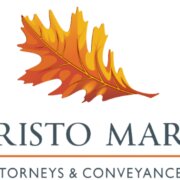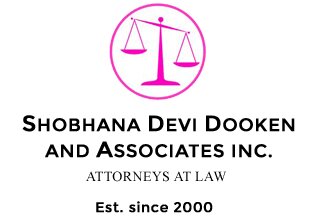Best Commercial Real Estate Lawyers in South Africa
Share your needs with us, get contacted by law firms.
Free. Takes 2 min.
Free Guide to Hiring a Real Estate Lawyer
Or refine your search by selecting a city:
List of the best lawyers in South Africa
About Commercial Real Estate Law in South Africa
Commercial real estate law in South Africa encompasses a wide range of legal aspects related to buying, selling, leasing, and developing commercial properties. This includes office buildings, industrial warehouses, retail spaces, and large multi-use complexes. The laws governing commercial real estate are intricately linked with regulations around property rights, financial obligations, and environmental considerations. The legal landscape is designed to ensure that all transactions are conducted fairly and transparently, safeguarding the interests of buyers, sellers, landlords, and tenants alike.
Why You May Need a Lawyer
There are several situations in which you may require legal assistance in commercial real estate transactions:
- Lease agreements: Negotiating terms and understanding obligations in commercial leases can be complex.
- Property acquisition or sale: Ensuring compliance with legal requirements during purchase or sale transactions.
- Dispute resolution: Handling disagreements between landlords and tenants or breaches of contract.
- Development and zoning laws: Navigating the legal intricacies related to property development and land use regulation.
- Tax implications: Understanding the tax liabilities and financial aspects of commercial property investments.
Local Laws Overview
Several key legal principles and laws govern commercial real estate in South Africa:
- Deeds Registries Act: Governs the registration of property transactions in the Deeds Office.
- Property Practitioners Act: Regulates conduct of estate agents and other property practitioners.
- Town Planning and Land Use Management: Includes laws pertaining to zoning, environmental impact, and urban development initiatives.
- National Environmental Management Act (NEMA): Addresses environmental considerations in real estate developments.
- Consumer Protection Act (CPA): Ensures fairness in property transactions and lays down the rights of buyers.
Frequently Asked Questions
What is the process for registering commercial property in South Africa?
The process involves signing a sale agreement, conducting a deed search, preparing transfer documents, paying transfer duty, and registering the transfer at the Deeds Office.
How can I finance a commercial real estate purchase?
Options include obtaining a commercial property loan from banks, using private investors, or through commercial property mortgage brokers.
What should I watch out for in a commercial lease agreement?
Key considerations are the length of the lease, rent escalation terms, maintenance responsibilities, and options for renewal or exit.
Are there specific zoning laws I need to consider?
Yes, each municipality has zoning regulations that dictate how land can be used. It’s important to check that the property's zoning aligns with your intended use.
How are property taxes calculated for commercial real estate?
Property taxes are based on the municipality's assessed value of the property and the applicable property tax rate.
What legal obligations do I have when selling commercial property?
Sellers must provide accurate property disclosures, ensure compliance with all applicable laws, and deliver clear title for transferred ownership.
How can disputes in commercial real estate be resolved?
Disputes can be resolved through negotiation, mediation, arbitration, or litigation, depending on the terms of the contract and the nature of the dispute.
What environmental regulations should I be aware of?
NEMA sets out the requirements for environmental impact assessments and the management of environmental risks in property development.
Is it possible to convert a residential property into commercial use?
Yes, but it typically requires rezoning approval from the local municipality and compliance with additional regulations.
What role do estate agents play in commercial property transactions?
Estate agents facilitate negotiations, advise on market conditions, and aid in marketing properties. Their activities are regulated by the Property Practitioner's Act.
Additional Resources
Consider reaching out to these resources for more information and assistance:
- South African Property Owners Association (SAPOA): Offers insights and resources for property owners.
- Deeds Office: Provides information on property registration processes and requirements.
- Local municipalities: Can provide detailed zoning and planning information.
- South African Council for Property Valuers Profession (SACPVP): Provides standards and practices for property valuation.
- Law Society of South Africa: Offers directories of qualified legal professionals specializing in real estate law.
Next Steps
If you need legal assistance with commercial real estate, consider the following steps:
- Identify your specific legal needs and objectives.
- Consult with a qualified commercial real estate lawyer or firm specializing in this area.
- Ensure the lawyer is familiar with local laws and has experience in the specific area of your concern.
- Discuss fees upfront and agree on a clear billing structure.
- Coordinate with other professionals, such as estate agents or financial advisors, as needed.
- Stay informed and engaged throughout the process to make well-informed decisions.
Lawzana helps you find the best lawyers and law firms in South Africa through a curated and pre-screened list of qualified legal professionals. Our platform offers rankings and detailed profiles of attorneys and law firms, allowing you to compare based on practice areas, including Commercial Real Estate, experience, and client feedback.
Each profile includes a description of the firm's areas of practice, client reviews, team members and partners, year of establishment, spoken languages, office locations, contact information, social media presence, and any published articles or resources. Most firms on our platform speak English and are experienced in both local and international legal matters.
Get a quote from top-rated law firms in South Africa — quickly, securely, and without unnecessary hassle.
Disclaimer:
The information provided on this page is for general informational purposes only and does not constitute legal advice. While we strive to ensure the accuracy and relevance of the content, legal information may change over time, and interpretations of the law can vary. You should always consult with a qualified legal professional for advice specific to your situation.
We disclaim all liability for actions taken or not taken based on the content of this page. If you believe any information is incorrect or outdated, please contact us, and we will review and update it where appropriate.
Browse commercial real estate law firms by city in South Africa
Refine your search by selecting a city.















